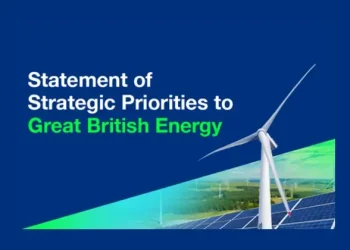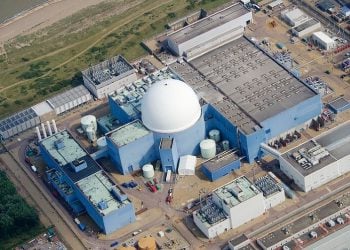The UK government convened the second AI Energy Council meeting on June 30, 2025, focusing on upgrading the national grid to support a twenty-fold increase in AI compute capacity by 2030.
This initiative aims to align with the £2 billion AI Opportunities Action Plan, fostering economic growth and sustainable energy use across the UK.
AI Growth Zones: A New Era for Regional Development
The introduction of AI Growth Zones is set to transform regional economies by attracting significant investment and creating jobs.
These zones require substantial power capacity, equivalent to powering two million homes, which could lead to economic revitalization in areas like Leeds and Bristol.
However, this development raises concerns about potential disparities between regions that can accommodate such infrastructure and those that cannot.
Opportunities for Local Communities
- Job creation in tech sectors within designated AI Growth Zones
- Increased investment leading to improved local infrastructure
- Potential for enhanced public services through AI integration
- Economic revitalization in underdeveloped regions
Balancing Energy Demands with Sustainability Goals
The council’s discussions highlighted the challenge of meeting AI’s growing energy demands while adhering to net-zero targets.
The UK’s commitment to clean energy sources is crucial as it seeks to avoid over-reliance on fossil fuels during this transition.
The government’s strategy includes leveraging nuclear power and advanced cooling technologies to ensure sustainable growth without compromising environmental goals.
Sustainable Solutions Under Consideration
- Nuclear power as a reliable energy source for data centers
- Advanced cooling technologies to reduce carbon emissions from data centers
- Integration of renewable energy sources into the national grid
- Reforms aimed at freeing up 400GW of grid capacity for new projects
Setting a Precedent in Clean Tech Integration
The UK’s approach could serve as a model for other nations balancing technological advancement with sustainability.
By prioritizing clean energy integration alongside AI development, the UK positions itself as a leader in climate-conscious innovation.
However, international competition remains fierce, with countries like the US and China also heavily investing in AI infrastructure.
International Implications and Challenges
- The UK’s model may influence global policies on sustainable tech development.
- Potential strain on global supply chains for critical minerals needed for renewables.
- The risk of increased dependency on multinational corporations for infrastructure support.
- Navigating geopolitical tensions related to technology leadership and resource allocation.
Additional Reading
The Takeaway
The UK’s ambitious plan to upgrade its national grid reflects its commitment to becoming an AI superpower while maintaining sustainability goals.
As these initiatives unfold, they promise significant economic benefits but also pose challenges related to regional disparities and environmental impacts. The success of these efforts will depend largely on effective implementation and international cooperation.
Discover more of Todays Top Breaking Government News Stories!
Sources: UK Government, International Energy Agency (IEA) Report, Stanford University’s 2024 AI Index, Department for Science, Innovation and Technology, Department for Energy Security and Net Zero, The Rt Hon Ed Miliband MP and The Rt Hon Peter Kyle MP.
Prepared by Ivan Alexander Golden, Founder of THX News™, an independent news organization delivering timely insights from global official sources. Combines AI-analyzed research with human-edited accuracy and context.









